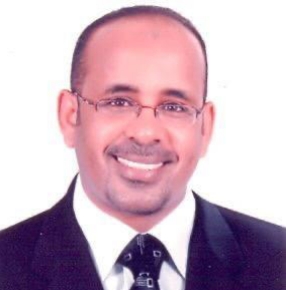War in Sudan: A Coup, a Militia, and a Nation Under Attack

Ambassador.Dr. Elwaleed Sayed Mohamed Ali*
The Nature of the War in Sudan:
Since April 2023, Sudan has been experiencing a brutal war, markedly different from previous conflicts. This war began after the Rapid Support Forces (RSF) launched a rebellion against the state in a failed attempt to seize power. Some foreign media outlets, backed by states supporting the militia, have portrayed the conflict as an internal struggle between two generals—General Abdel Fattah al-Burhan, leader of the Sudanese Armed Forces (SAF), and General Mohamed Hamdan Dagalo (Hemedti), commander of the RSF. According to this narrative, the war is merely a power struggle rooted in political, economic, and security issues.
However, in reality, these assumptions are inaccurate. This war has a fundamentally different nature and unprecedented dimensions both within Sudan and across the region. So, what is the true nature of this war, its underlying causes, and its impacts?
1. A Coup and Armed Rebellion:
The RSF was initially established in 2013 during the rule of former President Omar al-Bashir as a force supporting the Sudanese army. In 2017, a special law placed the RSF under the presidency. After the 2019 revolution and the fall of the(Ingaz) regime, the RSF grew significantly in size. The Sudanese army attempted to address this by calling for its integration into the regular forces, but the RSF refused.
Evidence suggests that the RSF became an uncontrollable parallel army, posing a direct threat to the sovereignty and unity of the state. Despite an agreement under the 2022 “Framework Agreement” between civilian and military parties, the RSF leadership refused to merge.
There are clear indicators that the events of April 2023 constituted a full-fledged coup attempt. RSF forces simultaneously attacked army positions, airports, and residential neighborhoods in a coordinated manner.
2. A War Against State Sovereignty and Unity:
One of the defining characteristics of this war is that it represents an attempt by a tribal militia to hijack and manipulate the state, which threatens the unity of the country. Accordingly, the Sudanese army, under constitutional duty, had to assert state sovereignty over all national territory and reject any parallel military forces outside the formal structure.
3. A War Threatening the National Social Fabric:
The RSF has targeted several ethnic groups, committing acts of mass extermination, such as those against the Masalit tribe in West Darfur. It has recruited members from tribes in Darfur and Kordofan, further endangering the country’s social fabric and promoting ethnic and tribal divisions. In contrast, the Sudanese army remains a unified institution promoting a national identity that transcends regional and tribal affiliations, defending the “national fabric” against a militia-led ethnic split.
4. A Proxy War with Regional and International Backing:
This war is also characterized as a proxy conflict, driven by regional and international agendas. Numerous foreign mercenaries have been captured and confessed to being recruited to fight in Sudan. The Sudanese government has submitted formal complaints to the United Nations—backed by documented evidence—against countries including the UAE and Chad. The International Court of Justice began reviewing Sudan’s complaint against the UAE on April 10, 2025.
Sudan’s strategic location and vast natural resources make it a target for illegal exploitation by foreign powers. It is evident that the RSF receives external support and is attempting to turn Sudan into a platform for foreign interests—possibly including Israeli involvement.
5. A War Against the Sudanese People:
Unlike previous conflicts, this war is not limited to fighting the national army; it is a war waged against the Sudanese people themselves. The RSF has perpetrated unprecedented atrocities against civilians: destruction of property, systematic killings, rape, kidnapping, forced marriages, looting, and other grave human rights violations. These acts indicate that the RSF and its mercenary allies are not driven by political grievances but rather by violent and criminal intentions.
Thousands of Sudanese civilians have been killed and displaced. According to international organizations, over 20,000 people have been killed (the International Rescue Committee reported 150,000), and approximately 13 million have been displaced—70% of them children. More than 25 million people are living in dire humanitarian conditions. Horrific images and videos have emerged showing the abuse of detainees held in RSF-run prisons following the liberation of Khartoum State. The brutality of these acts resembles the atrocities currently being committed against Palestinians by Israel.
Conclusion:
Based on the above, this war represents a coup attempt aimed at seizing power with the support of foreign actors and foreign fighters. The RSF militia has tried to undermine national unity and terrorize innocent civilians. In response, the national army, official security forces, joint forces, and popular resistance groups have mobilized to restore national sovereignty, unify the armed forces under centralized leadership, and save Sudan from the fate of other neighboring countries that have become battlegrounds for militia warfare.
Friends of Sudan who have condemned the actions of the rebel militia must now help reveal the true nature of this war. What is happening in Sudan is not merely a power struggle—it is a battle for the survival of the nation itself. Either Sudan remains a sovereign state governed by institutions under the banner of the national army, or it descends into chaos and division, led by a militia seeking to seize power by force.
Currently, the Sudanese army, regular forces, joint forces and popular resistance are fighting for Sudan, its unity, sovereignty and dignity, Thus, as painful as it may be, this war is a necessary price to pay to preserve Sudan’s unity and ensure it remains a state governed not by violence, but by institutions.
Sudanese Diplomat*
ElwaleedSB@gmail.com



